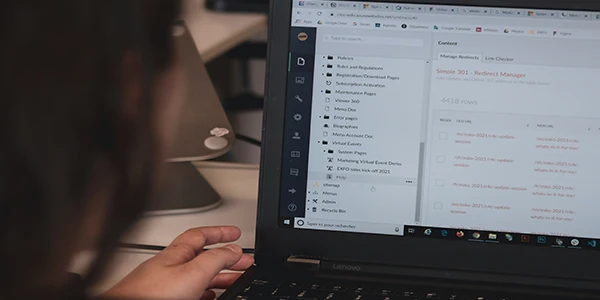Have you recently gotten a job offer? Here are four email responses examples, you can send to accept, reject, negotiate, or ponder a job offer.
When you receive a job offer in your email, you feel a surge of hope. It may be your dream job, or it could be a substandard offer that indicates your job search isn’t done. In either case, you must notify the employer of your decision.
Your reaction will be one of four alternatives, depending on the offer: acceptance, rejection, negotiation, or consideration. While making a decision may come naturally to you, professionally expressing yourself may not. Consider how to reply to a job offer in each of the four circumstances.
1# How to Request Additional Time to Consider a Job Offer

Typically, you’ll receive your first job offer over the phone, which is known as a “verbal.” However, you are not required to respond at that moment, so don’t feel obligated to do so. Thank the employer for the offer and let them know you’ll respond as soon as possible. If you have specific reasons for needing extra time (such as personal obligations), you can also briefly explain them.
If the recruiting manager expects an answer by a certain date, they will tell you. If they don’t provide you any particular, you should inquire when they’d like your response. A common time frame for considering a job offer is one week.
Following the verbal, you will receive an email with the formal written offer, which will include further information about the job as well as compensation and benefits information. When you’re ready, you can react to the written offer with your own email.
If you want to take your time thinking about the offer, send back something like below:
Dear [Name of Recipient],
Thank you for informing me about the Product Manager employment offer.
I’m sorry for delaying my formal response to the job offer, but I’m carefully studying the details and would need a few days to think about it. Could I respond to your offer by the 18th?
Thank you ahead of time.
Thank you very much,
[Your Surname]
During this stage, take a time to ask yourself some crucial questions to determine whether the job opportunity matches your preferences. This will assist you in making better selections.
How to Request More Details About a Job Offer

Some organizations will send you enough job information to allow you to make an informed decision. However, many do not, and you will need to write them to request further information before making your final selection.
Here’s an example of such an email:
Hello, [Name of Recipient],
Thank you for taking the time to consider me for the position of Sales Manager. I appreciated the interview process and am excited to be a part of the team!
After studying the offer, I had a few questions for you, mainly about the health insurance and paid leave. Is this something you’ll be able to discuss soon? I’d welcome clarity on those words, and I’m available to take your call as soon as possible. I’m available most afternoons around 2 p.m.
Sincerely,
[Your name]
2# How to Make a Deal About a Job Offer

If the terms of the offer are not acceptable to you, don’t be afraid to bargain. Accepting a low-paying job will adversely impact your mental health and career success in the long run, so demand what you’re worth. This not only increases your earning possibilities, but it also increases your job happiness and motivation. When your expectations match what the organization provides, it can improve your whole work experience dramatically.
Most negotiations take place over the phone, with specifics finalized via email, but you must initiate the conversation by sending an email.
This is how it would look:
Hello, [Name of Recipient],
Thank you again for informing me about the offer earlier. Working with Apex is something I’ve wanted to do for a long time, and I’m pleased to be a part of the team.
However, I have some questions about the pay plan and would like to know when you are available to discuss them.
Please notify me. Thank you in advance for your assistance.
Best,
[Your name]
You can announce your plan to negotiate outright, but it’s probably more polite to be a little… diplomatic. If you’re a freelancer, you should investigate your pay rate by looking at what others in your sector are charging. This is just one of many helpful hints to keep in mind while negotiating a higher rate for freelance work.
When You Have Another Job Offer, How Do You Negotiate?

If you submitted multiple applications, you may receive multiple employment offers at the same time. It’s critical to inform both employers, but do it in a neutral, tactful manner. It will expedite the closing process and put you in a better position to negotiate more advantageous conditions.
Here’s an example of such an email:
[Hello, [Recipient Name],
I was overjoyed to accept an offer for the position of Backend Developer at [Company Name]. Thank you for the easy interview and your patience in resolving all of my issues.
I wanted to let you know that I received an unexpected job offer this week, and while that position also interests me, working with you would be my first option. However, the offered compensation was much more. And this complicates my decision.
Is there room for bargaining in terms of compensation and benefits?
Sincerely,
[Your Name]
If the corporation recognizes how valuable you are, they will revise their offer and make a counter-offer. If not, it’s up to you to decide what’s best for your job—the lower offer may give a higher opportunity of career advancement or exceptional learning opportunities. Everything is dependent on what is important to you at this point in your career.
3# How to Accept a Job Offer

If you decide to accept a job offer, make your email brief and to the point. You should thank the employer for the offer and then clearly accept the employment offer. Mention the agreed-upon job title and start date, and conclude with an inquiry concerning the next steps.
Rep with something like this:
Hello, [Name of Recipient],
Thank you for sharing the specifics of the offer with me earlier. I’ve reviewed the terms and am excited to join your team as a content strategist. I’m ecstatic about this opportunity and can’t wait to begin on February 7th!
Please advise me of the next stages and if you require any additional documents or information from me.
Best,
[Your Name]
However, before accepting a job offer, it’s critical to look for red signals in a possible employer. Recognizing these warning signs can help to ensure a more pleasant experience in the future.
4# How to Decline a Job Offer

If you determine that a job offer isn’t right for you after thorough evaluation, you should notify the company. This may not be the simplest thing to say—rejection hurts regardless of which side you’re on. Even if you believe an employer went out of their way to sell you the position, “no” is part of the job search process for both parties.
Keep the email brief and polite—you want to appear grateful, but you don’t need to go into great detail about why you’re declining the offer. Finish with an invitation to stay in touch.
Here’s an example:
Hello, [Name of Recipient],
Thank you for giving me the opportunity to meet the team last week. It was fantastic to hear more about the Growth Strategist role, and I was overjoyed to be hired. However, after careful consideration, I’ve concluded that this position is not the best fit for my professional objectives at this time.
It’s been a pleasure getting to know you, and I hope we can work together again in the future. Please stay in contact!
Sincerely,
[Your Name]
You’re one email away from landing your dream job.
It is critical that you respond to employers professionally. With the help of this essay, you can be confident that your response will be well-articulated.
You may want to improve your writing skills so that you can compose emails, memos, and letters when the occasion arises.